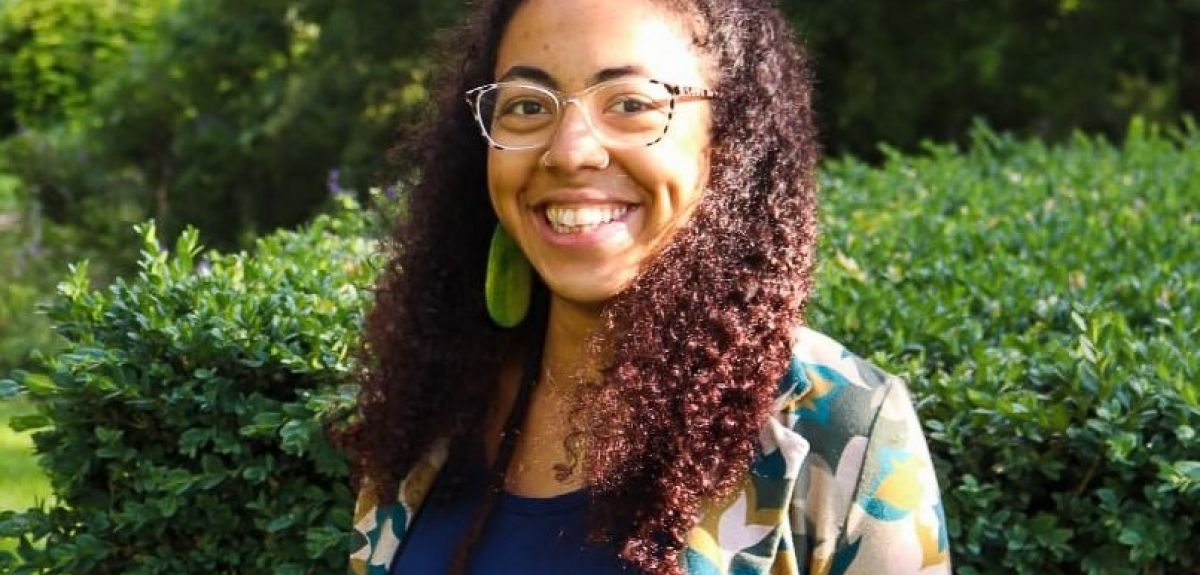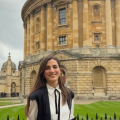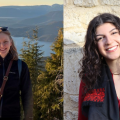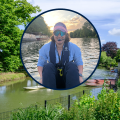
Student Spotlight: Life at Oxford as a disabled student
Sara Middleton is a PhD candidate in Plant Ecology at St Cross College and the Department of Zoology and Plant Sciences. In this Student Spotlight for Disability History Month, Sara shares how she navigates the sciences with her largely invisible disabilities. In writing about her experience, Sara aims to address any social stigma around being a disabled scientist.
The journey so far
I have scripts ready to recite when asked about myself around new people. Depending on my audience and/or how much energy I have, I will answer anywhere from PhD student to plant functional ecologist to poker of plants. It is perhaps one of the hardest statements for me to address in full, as I have a complex web of interests and typically only share a small slice of who I am.
Unfortunately, my final high school exam grades were low (due to my undiagnosed neurodivergence), but despite multiple rejections, I managed to get into Oxford Brookes and my time there changed my life: I discovered my love of plants and I received a formal diagnosis of dyslexia. This diagnosis helped change how I saw myself and my approach to learning.
Two degrees, three gap years and a handful of diagnoses later, I am a PhD candidate. Outside my research, I work on a number of Diversity, Equality and Inclusion (DEI) initiatives such as the BIPOC STEM Network I co-founded, aiming to support and promote the work of people of colour in STEM at Oxford.
Life as a disabled person in the sciences
I am not just navigating the sciences as a disabled person but also as a Black woman. I am both visible and invisible at the same time. I often stand out as often the only Black face in seminars or conferences, but my disabilities are largely invisible. For years I subconsciously hid my disabilities from my colleagues, for fear of being seen as a less capable scientist. It is only recently that I openly discuss my disabilities. I do this to break down my internalised ableism and to address the social stigma around being a disabled scientist.
I have complex post-traumatic stress disorder (cPTSD), endometriosis and an autoimmune condition which impacts my joints and causes brain fog and fatigue. I am also considered neurodivergent with dyslexia, ADHD and autism. Repeated exclusionary experiences cause destress, burnout and divert time away from doing research, whilst also making me question whether I belong in science.
Navigating academic spaces
The two main challenges I have navigating academic spaces is communicating with other (neurotypical) people and the dynamic nature of my disabilities. I struggle to understand people’s intentions and expectations unless clearly stated, as I take things literally and cannot always decode facial expressions. Communicating my thoughts is equally challenging. Quickly translating my ideas in a linear and digestible way for neurotypical people to understand is difficult.
The dynamic and unpredictable nature of my disability makes meeting the goals of my PhD challenging, due to shifts in productivity levels. The pandemic has added an extra layer of hardship, as we have had to rearrange how we meet and do our research. For me, video online meetings are even more energy intensive, as I find it even harder to decode facial expressions and understand social cues than in person. Being more open and advocating for my needs as a disabled person, not just to survive but to thrive has helped. Colleagues that have raised inaccessibility issues on my behalf in a number of DEI committee meetings have helped me greatly. Having allies who listen and show and act with compassion has lessened the burden for me.
Looking to the future
Being disabled does not make a person any less of a scientist. Actively listen to your peers if they disclose their disabilities to you, as they have entrusted you with sharing this important part about themselves. If you are in a position of power and a disabled person asks for accommodations, give it to them. Learn to recognise that disabilities are unique and dynamic. Ultimately, we should strive for universal design, of both our workspaces and pedagogy, as this gives everybody the best chance to fully be themselves and blossom in science.
Read more about Sara's co-founded network for increasing diversity, inclusivity and representation within academic, BIPOC STEM Network.
This text has been adapted with permission from a wider article for Disability Pride Month, featuring interviews with scientists across career stages, with the hopes of redefining public perception of what it means to be a scientist with a disability.
 Student story: Finding space for Kosovo at Oxford
Student story: Finding space for Kosovo at Oxford
 Oxford students shortlisted as McCall MacBain Scholarship finalists
Oxford students shortlisted as McCall MacBain Scholarship finalists
 Student story: My time at Oxford has been deeply transformative
Student story: My time at Oxford has been deeply transformative
 Welfare blog: Dealing with imposter syndrome
Welfare blog: Dealing with imposter syndrome
 Student story: Rowing sabbatical officer
Student story: Rowing sabbatical officer